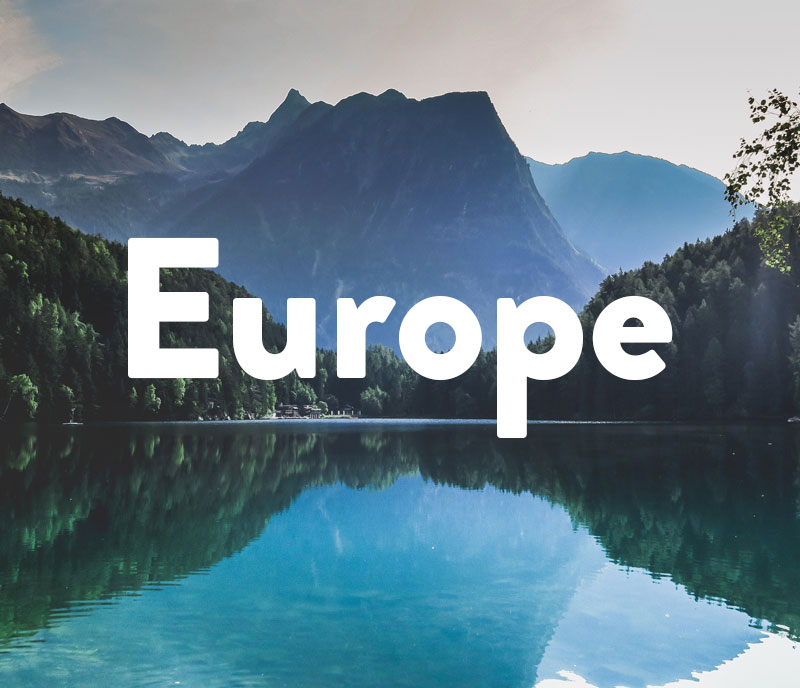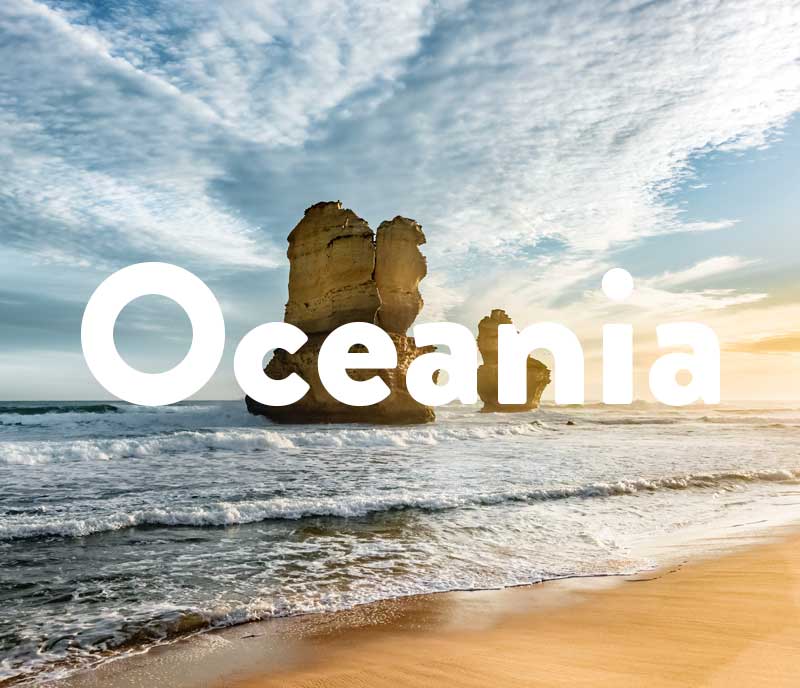The land of fairy tale and folklore, efficiency and engineering, Germany is a fascinating country. From the majestic Alps to the rolling countryside, Germany is a country rich in natural beauty with a vast expanse of forests and quintessential timbered villages as well as contemporary urban cities.
Table of contents:
- The key info
- Germany in numbers
- The 5 largest cities in Germany
- Top 5 tourist attractions
- Best time to travel
- Holidays in Germany
- Visa Requirements
- Currency
- Packing must-haves
- Dos and Don’ts in Germany
- Secret tips by bloggers
- Top Instagrammable places
- Fun facts about Germany
Dive into our (free) travel guides below!
.
.
.
.
.
.
.
.
The Key Info
Bordering with Denmark to the north, Poland and the Czech Republic to the east, France to the south, and Luxembourg, Belgium, and the Netherlands to the west, Germany is often portrayed as being the ‘Capital of Europe’ due to its central location. It has the biggest economy on the planet, and this Western European country has the highest population in the EU. Providing a rich and varied appeal, German welcomes millions of tourists each year, and it is currently the eighth-most visited country in the world.
Country in numbers
- Population number: 83,019,200
- Total size of the country: 357,386 km2
- Capital city: Berlin
- Currency: Euro (€/ EUR)
- Language: German
- Religion: 57% Christian, 36% No Religion, 7% Others / Undeclared
The 5 Largest Cities in Germany
#1 Berlin
With a population of over 2.4 million, Berlin is the capital city of Germany and one of the most visited cities on the planet. The city has had a turbulent history, and the Berlin Wall originally acted as the border between East and West Germany until the country was reunited in 1990. Today, Berlin is a creative hub with a vibrant art and music scene, excellent nightlife, and world-class cuisine. It is an eclectic mix of the old and the new. If you are looking for a vacation that promises festive spirit for the whole family, the Christmas markets in Berlin are truly enchanting.
#2 Hamburg
Hamburg is the place where vibrant cosmopolitan vibes meet traditional maritime charm. Famous for being the home of the hamburger, it is the nation’s greenest city as well as the second largest. Seated on the River Elbe in the north of the country, this medieval city is one of the coolest places in the world. With architectural delights, hundreds of canals and waterways, and some of the best nightlife in the world, a visit to Hamburg is a must.
#3 Munich
Known in German as München, the Bavarian capital is full of fascinating architecture, history, culture, and museums. The English Garden provides the perfect spot to laze away a summer afternoon and there are several must-see palaces and castles in the vicinity, notably the Munich Residenz and the Nymphenburg Palace. Munich is particularly famous for being the home of Oktoberfest, but all year round there is fun to be had at its huge beer halls, with long communal tables and steins of some of the best beer you have ever tasted.
#4 Cologne
One of Germany’s oldest cities, Cologne offers over 2000 years of history. It may not be the most beautiful of places, but it has a unique charm and the blend of old and new provides a travel experience like no other. The UNESCO-protected cathedral is particularly impressive. Ascend to the top of the spire for a phenomenal view of the landscape below.
#5 Frankfurt
Frankfurt is the financial center of the country. It is a city of skyscrapers, business and Apfelwein- possibly one of the best ciders ever to be created. At the heart of Frankfurt’s old town, the Römerberg is a picture-perfect square with shops, cafes, restaurants, and several landmarks, including Wertheim House, the Old Town Hall and the 14th century Gothic Church of St. Leonhard.
Top Tourist Attractions
#1 Europa Park in Rust
The most visited tourist attraction in Germany is the Europa theme park located in the southern town of Rust. With 13 rollercoasters, a 4D cinema and hundreds of additional shops and attractions, it is pretty clear why more than 5 million head to Europa Park Each year. Applying precise German engineering to rollercoaster design, this theme park promises to be a blast.
#2 Oktoberfest
Oktoberfest in Munich is the world’s largest volksfest and arguably the most famous celebration of beer. It goes on for around 15-18 days and welcomes over 6 million visitors per year. There are 14 main beer tents, but the whole city gets involved, with Oktoberfest deals and parties throughout the cities. Join the festivities for a German experience like no other!
#3 The Black Forest
With evergreen forests and picturesque villages, a trip to Germany’s Black Forest will make you feel as if you have wandered into a Brothers Grimm fairy tale. This large mountain range in Baden-Württemberg is renowned for its magical old-world charm, and there are so many beautiful spots within the area. It is also the perfect place to relax and pamper, with spa towns and idyllic mountain resorts amongst the greenery.
#4 Neuschwanstein Castle
Originally built as a place for shy King Ludwig II to retreat from the public, Neuschwanstein Castle was first opened to visitors in 1886. This fairy tale palace is even rumored to have inspired the world-famous Disney Castle. Set amongst the countryside, this is one of the most popular tourist attractions in Germany, with 6000 visitors a day marveling at the elaborate decor.
#5 The Berlin Wall
From 1961- 1989, the wall divided the city and now what remains is a significant reminder of the capital’s turbulent history. There are several points along the wall that attract visitors, including the American controlled border crossing, Checkpoint Charlie, and the world-renowned East Side Gallery. This is the longest open-air gallery in the world, providing a collection of the masterpieces painted on the wall by 118 artists from 21 countries.
The best time to travel to Germany
Germany has a diverse climate and geography, and the best time to travel will depend on the nature of your trip. June to September are the hottest months, but it is also the wettest time and late Spring and early autumn are particularly popular. Although, Christmas is particularly magical, and in many cities, the traditional markets, decorations, and mugs of glühwein offer a festive experience like nowhere else. Plus, visiting Germany in winter provides the perfect opportunity to explore the cities without the tourists or to hit the slopes for some fantastic skiing.
Holidays in Germany
- 1 January: New Year’s Day
- 6 January: Epiphany
- 11 March: Green Monday
- 19 April, Good Friday.
- 22 April: Easter Monday
- 1 May: Labour Day.
- 20 May: Ascension Day
- 10 June: Whit Monday
- 20 June: Corpus Christi
- 8 August: Peace Festival
- 3 October: Day of German Unity
- 31 October Reformation Day
- 1 November: All Saints Day
- 25 December: Christmas Day.
Visa Requirements
If you are traveling to Germany for a short stay, a visa may not be required, but this will depend on your passport’s country of origin. Germany is part of the Schengen zone, so you may need to apply for a Schengen Visa.
Please ensure that your passport is valid for at least six months beyond your stay, and for more information, check out Germany’s Federal Foreign Office website.
Currency
Replacing the Deutsche Mark in 2002, Germany now uses the Euro. Notes include €500, €200, €100, €50, €20, €10 and0€ 5 and coins include €2, €1, 50c, 20c, 10c, 5c, 2c, and 1c. Major credit and debit cards, such as MasterCard and Visa, are accepted throughout Germany. However, they do tend to prefer cash over card and some businesses will not accept plastic. You can withdraw money from one of the many ATMs across towns and cities but check the commission rates with your bank before you travel.
Packing must-haves
It will depend on what time of the years you are visiting but rain is always a possibility. You are likely to require waterproofs, a jacket or at least an umbrella. A great pair of walking shoes is definitely recommended, as well as light and comfortable clothes. German fashion is relatively formal- so keep it smart to fit right in.
DOs and DON’Ts
| Do | Don’t |
| Be Polite: Although quite straight to the point and fairly formal, Germans are super polite. Remember that it is nice to be nice and you can’t go far wrong! | Stick to the cities: Whilst the cities of Germany provide history, museums, culture and more, the countryside has to be seen to be believed. Rural Germany is truly breathtaking and definitely worth a hike. |
| Exercise discretion: Certain topics are avoided at best or at least handled with the ultimate sensitivity. | Make noise: Quiet hours are enshrined in German law and even talking loudly in public could be considered to be a bit of a nuisance. This applies to everyone except children. |
| Practice your German: While many people in Germany do speak English, you should never assume. Use the opportunity to learn a new language, even if it is just a couple of words! | Be late: Metaphorically, German time is about 10 minutes ahead of the rest of the world and as a nation, they are efficient and punctual. |
| Get a transport card: German public transport is excellent and super reliable. Use public transport for a cheap and effective way of getting around. | Assume anything: Germany is a super diverse country, and what is considered to be ‘stereotypically German’ is quite often Bavarian. The 16 regions that make up the country are unique and varied. |
| Make Eye Contact: In Germany, it is considered a bad omen if you raise your glass without making eye contact with the other person. It is also bad luck to cross your arms when making a toast. | Just cross: Wait for the traffic man to turn green before you cross and do not jaywalk. You can be fined for crossing incorrectly and people around you are likely to have something to say. |
Secret tips from bloggers
- Head to Sylt for one of Europe’s most beautiful beaches
- The island of Rügen is an ‘oasis in the Baltic sea’
- Head to the flea markets in Berlin to pick up a serious bargain
- Cancel the low carb diet for your trip- German bread is AMAZING
- Take a river cruise in Hamburg at night
TOP 7 Instagrammable places
- #zugspitze (300k)
- #brandenburggate (152k)
- #colognecathedral (105k)
- #RothenburgObDerTauber (98k)
- #Eltzcastle (27k)
- #rakotzbridge (16k)
- #wiblingen (92k)
Fun facts about Germany
Did you know?
- The German football team is the second-best in the world.
- Although it is one of the most densely populated countries; a third of Germany is covered in forests and woodland.
- It is the first country in the world to adopt Daylight Saving Hours.
- In Germany, it is bad luck to wish someone happy birthday before the big day.
- With a staggering 1650, Berlin has more bridges than Venice!
Dive into our latest articles…
- Winter city breaks 2024 — 10 wonderful destinations around the world
- Holiday at home — plan a relaxing autumn staycation
- Autumn photography — 10 tips for capturing seasonal snapshots
- Tips for your autumn trip — our autumn favourites
- City breaks in autumn 2024 — 8 unforgettable destinations across Europe







